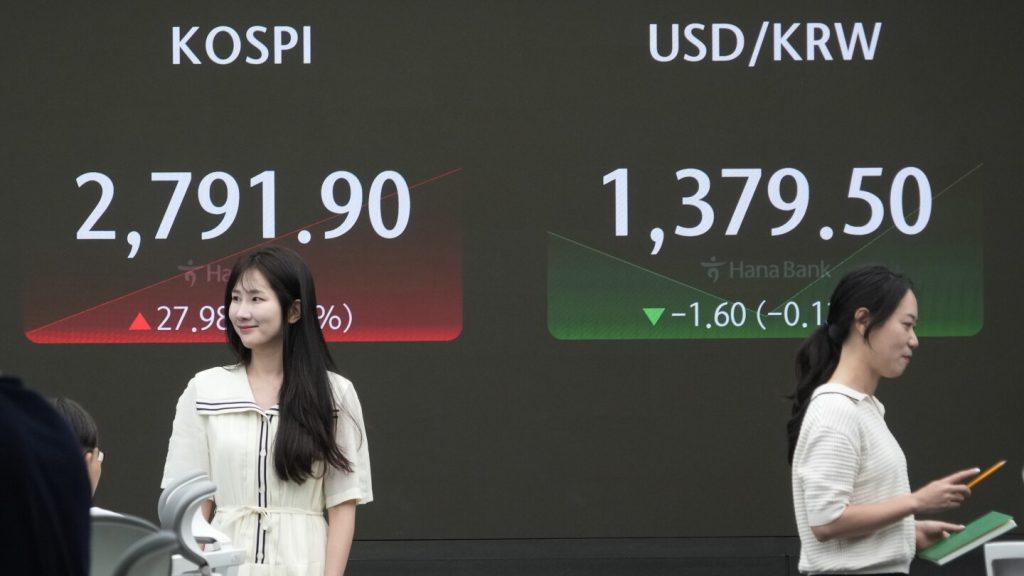World stocks were mixed on Wednesday after U.S. benchmarks reached new records, signaling that the U.S. economy may be slowing without going into a recession. European equity markets opened lower, with the FTSE 100 in London losing 0.2% and the DAX in Germany slipping 0.1%. The Nikkei 225 in Tokyo climbed 0.2% following positive trade data for May. Minutes from the Bank of Japan’s meeting showed debate over raising the benchmark interest rate in the near future.
In Hong Kong, the Hang Seng added 2.9% while the Shanghai Composite lost 0.4% after China’s securities watchdog announced increased oversight of financial activities to mitigate risks. The S&P/ASX 200 in Sydney edged 0.1% lower, while South Korea’s Kospi surged 1.2%. Other Asian markets saw varying movements, with Taiwan’s Taiex gaining 2% and Bangkok’s SET falling 1%.
The S&P 500 set an all-time high for the 31st time this year, with the Nasdaq composite and the Dow Jones Industrial Average also recording gains. Nvidia was a strong performer, pushing the S&P 500 upwards. Retail sales in the U.S. rose 0.1% in May, below expectations, indicating a potential slowdown in household spending, the main driver of the U.S. economy. Inflation remains high, impacting lower-income households disproportionally. U.S. benchmark crude oil prices and the dollar saw slight declines in trading.
Overall, global markets continue to show mixed movements, influenced by economic data and geopolitical developments. Investors are closely monitoring key indicators such as inflation, interest rates, and consumer spending for signals on the health of the global economy. The ongoing debate over monetary policy decisions in major economies like Japan and the U.S. adds to the uncertainty in the markets. Moving forward, market participants will be closely watching for further developments that could impact stock prices and investor sentiment.


